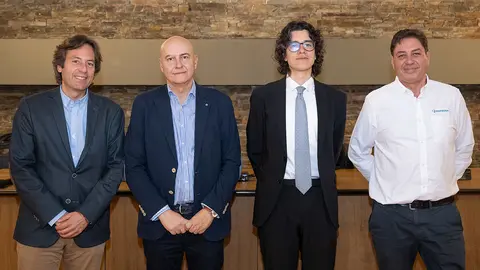The Tour d'Europe or renewable fuels as a solution for decarbonisation
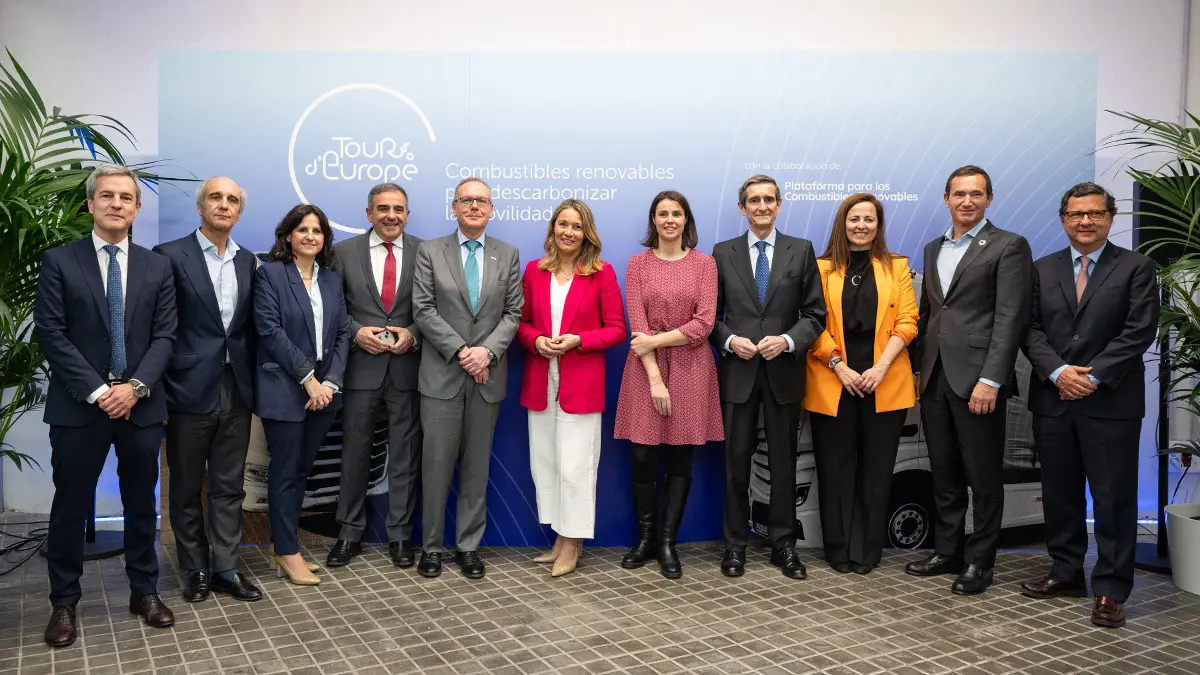
The Tour d'Europe kicked off in Madrid with a meeting, organised together with the Platform for Renewable Fuels, to analyse the role of renewables in decarbonising mobility. The aim was to present the existing alternatives for decarbonisation and the potential that these fuels have for reducing emissions in the road transport sector.
A real and viable option
The Tour d'Europe, a European project involving representatives from the entire value chain, aims to demonstrate, as explained by Ricardo Olalla, Vice-President of Sales Mobility Solutions at Bosch Spain, that renewable fuels are a real, efficient and viable option and that thanks to digitalisation (Digital Fuel Twin (DFT), a system developed by Bosch) it is possible to measure and record CO2 emissions produced on the road. This European tour involves HVO diesel and renewable petrol lorries and cars that will travel across Europe for three months. One of the key factors of renewable fuels, Olalla emphasised, is that they can be used by today's cars. ‘It's a project that speaks of the present but also of the future,’ said Olalla, as investments will be made so that users can certify the emissions from the use of renewable fuels.
The meeting was opened by Antonio Albacete, truck racing driver and three-time European champion, who spoke of the motor world as synonymous with innovation and the need for renewable fuels for a more sustainable and efficient future. Albacete emphasised that since 2021 they have been using renewables in the competition and that in these years they have neither lost performance nor modified the engines, but they have put on a show and made the championship more sustainable and efficient.
‘The lorries on this tour are going to demonstrate that renewable fuels are a reality. Together we are going to promote this renewal and this change,’ he said.
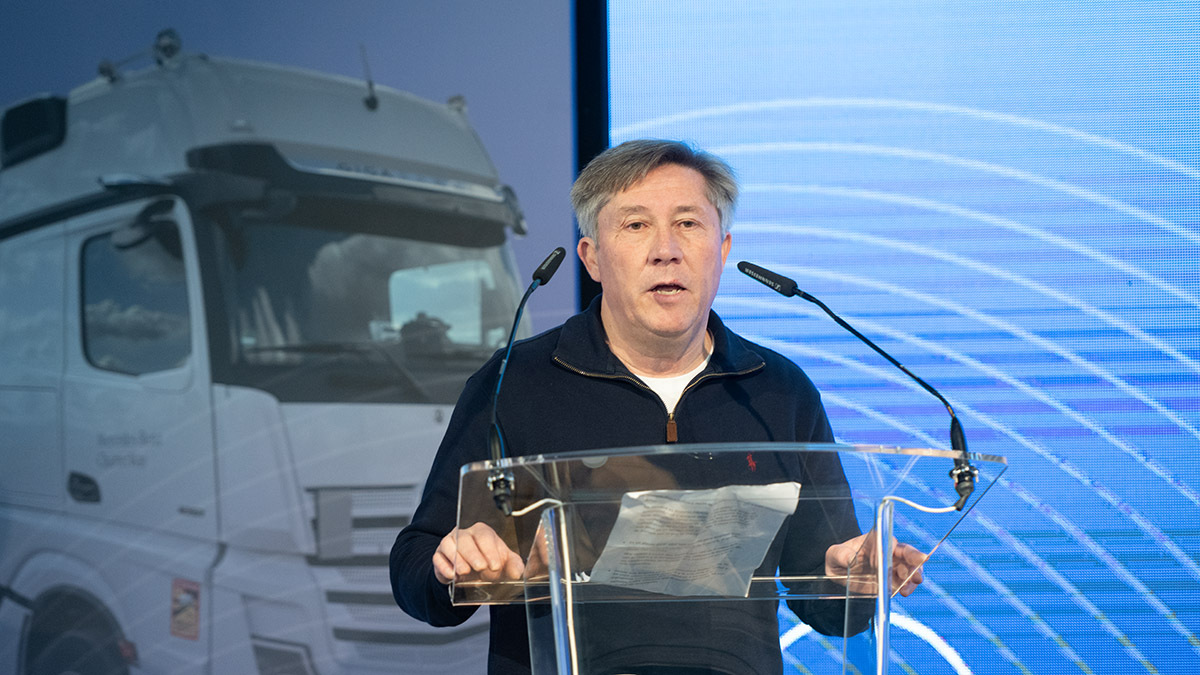
Commitment to technological neutrality
The three-time European champion gave way to the Regional Minister for the Environment, Agriculture and Home Affairs of the Community of Madrid, Carlos Novillo, who was convinced that common sense and technological neutrality will prevail in the automotive world, avoiding pollution and assuming the commitment to decarbonisation. The councillor emphasised that in the Community of Madrid ‘we are clear about the unmanageable deadlines for industry and society that make us dependent on other countries’, hence the reason for advocating taking advantage of all the opportunities provided by science and technology and making the transition to a model of mobility that is more respectful of the environment and the health of citizens.
Finally, he indicated that this tour is an example of how we can continue to use our combustion vehicles with these renewable fuels and that the regional government will be there to promote this type of fuel ‘which is going to be the future’.
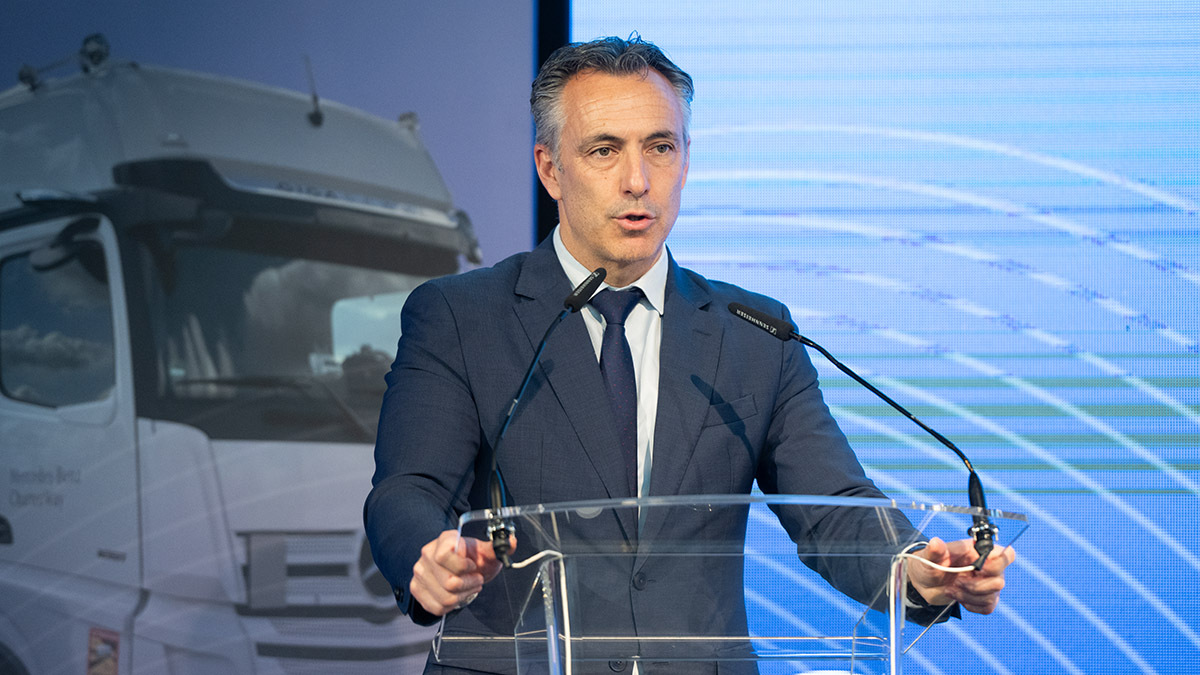
The potential of renewables
A future that was defended at the round table ‘The potential of renewable fuels in reducing emissions’, moderated by Inés Cardenal, from the Platform for Renewable Fuels, and in which Susana Solís, PP MEP; Antonio Vallespir, president of e-PURE; Ramón Valdivia, member of the Executive Committee of the Presidency of IRU; Álvaro Arroyo, director of Institutional Relations of Iveco; Pierre-Yves Sachet, Executive Vice-President of Mobility & New Commerce of Moeve; and José Barreiro, Executive Director of Mobility Iberia of Repsol took part.
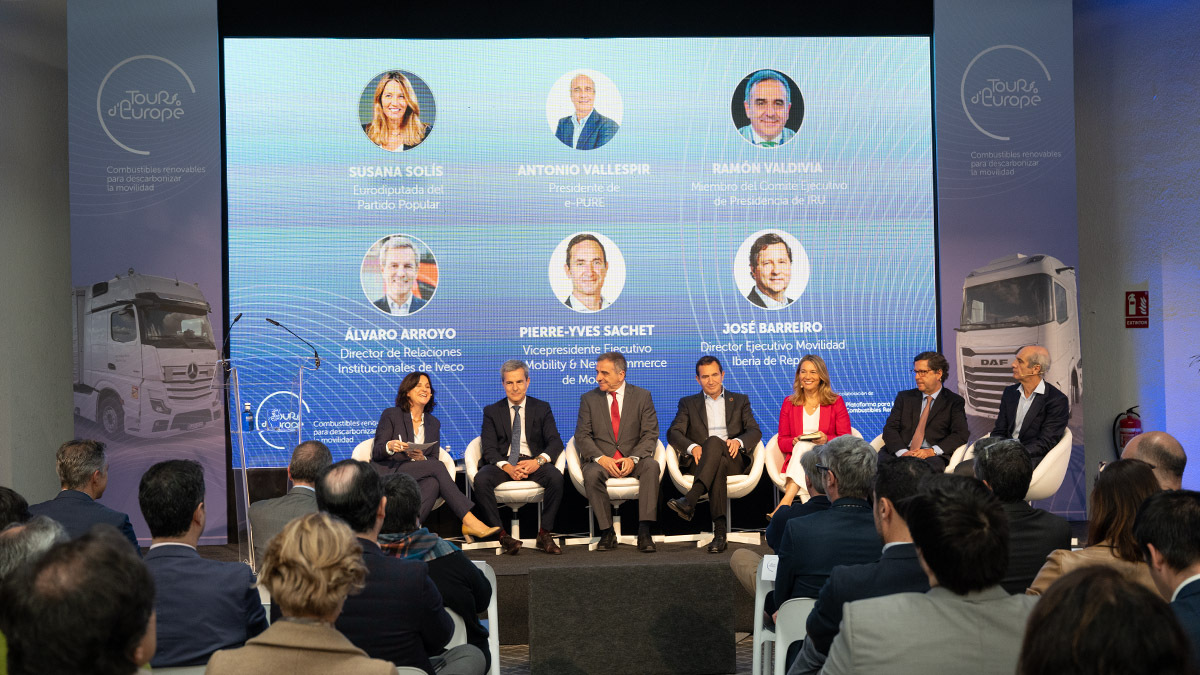
Susana Solís emphasised that in Europe they are defending the role of renewable fuels in decarbonisation and she was optimistic because, in the case of the automotive industry, changes are being seen, so she hopes that technological neutrality will be included, although she also indicated that it is necessary to define broadly what a renewable fuel is.
20% of European production is in Spain with 9 refineries, emphasised Cardenal, giving the floor to Antonio Vallespir who recalled that they represent 50 biorefineries which are 85% of production in Europe. For Vallespir, the problem lies in the fact that our taxation is based on litres. ‘The problem is not production or distribution, but regulatory measures, and that is where Europe's help is needed,’ he stressed. The Repsol executive spoke about its production centres with very low-footprint products that will increasingly use renewables, that are sustainable and that will use the circular economy. He also highlighted the use of the highest-end renewable fuel, NEXA diesel, which began in Spain and then in Portugal. Currently, Barreiro said, Repsol has almost 700 service stations with 100% renewable fuel and expects to reach 1,500 by the end of the year.
Pierre-Yves Sachet emphasised that Moeve is working towards decarbonisation based on green hydrogen and renewable biofuels. On the production side, they will develop the largest renewable hydrogen project in Huelva and expect to produce one and a half million tonnes in plants in southern Spain by 2030. The important thing, said the Moeve representative, is that the logistics and infrastructure are in place, hence the demand is also growing, mainly, he said, from heavy transport.
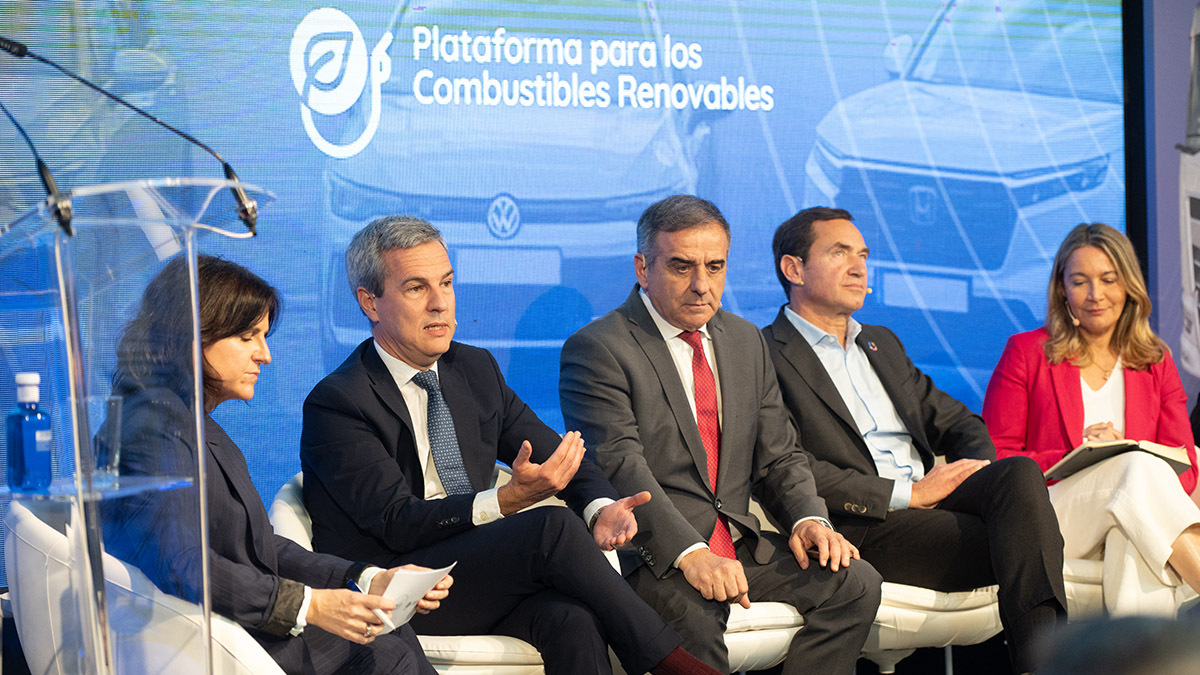
Another important fact is that 97% of goods in Spain are transported by road. In this sense, according to Álvaro Arroyo, it should be remembered that the reduction of emissions began 30 years ago, and that the sector's commitment to sustainability is firm. Arroyo insisted that a distinction must be made between air quality, which means focusing on the exhaust pipe, and another issue which is long distance. In this sense, he said that we must look at all the alternatives for decarbonisation and use them according to need.
Ramón Valdivia also spoke to point out that there are sectors that are difficult to electrify from the outset, such as long-distance lorries and coaches. ‘We are in 152 countries and what we want to say is that what is not sustainable is our way and quality of life without transport,’ he said. Valdivia was less optimistic than other participants, because the reality, he said, is that they are not being helped in this transition, and there are no real solutions for transport.
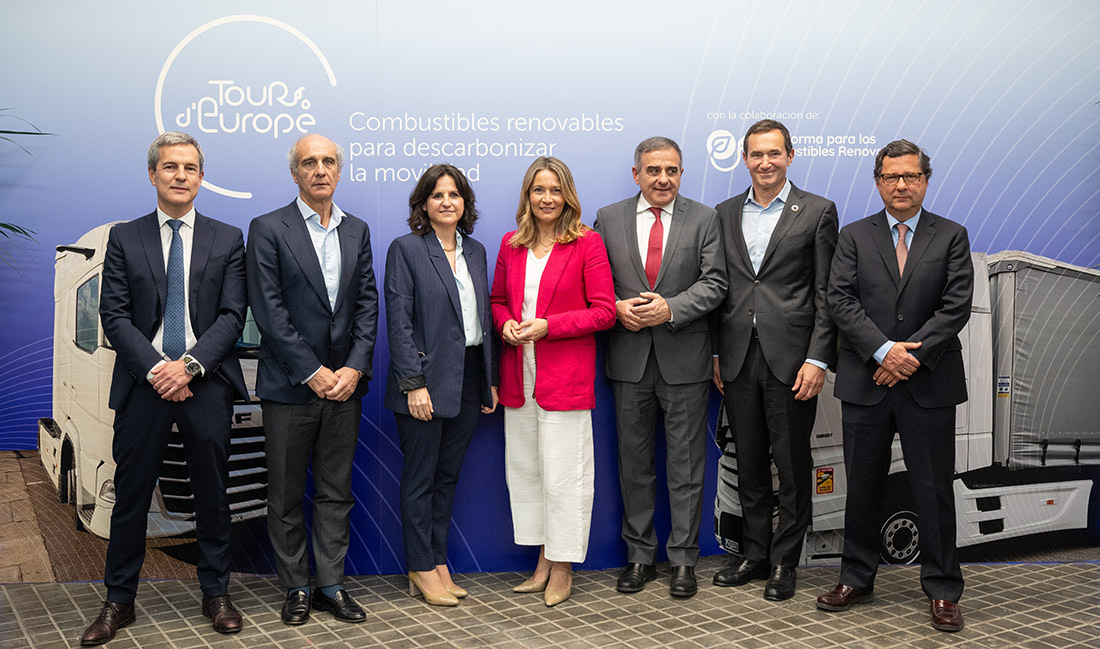
All agreed on the importance of organising platforms like the one held, on the need to achieve climate neutrality through technological neutrality and to achieve clear taxation of all fuels, which is fair and can compete in this technological neutrality. They also highlighted the role and opportunity that Spain can have in decarbonisation, as it has the infrastructure and production.
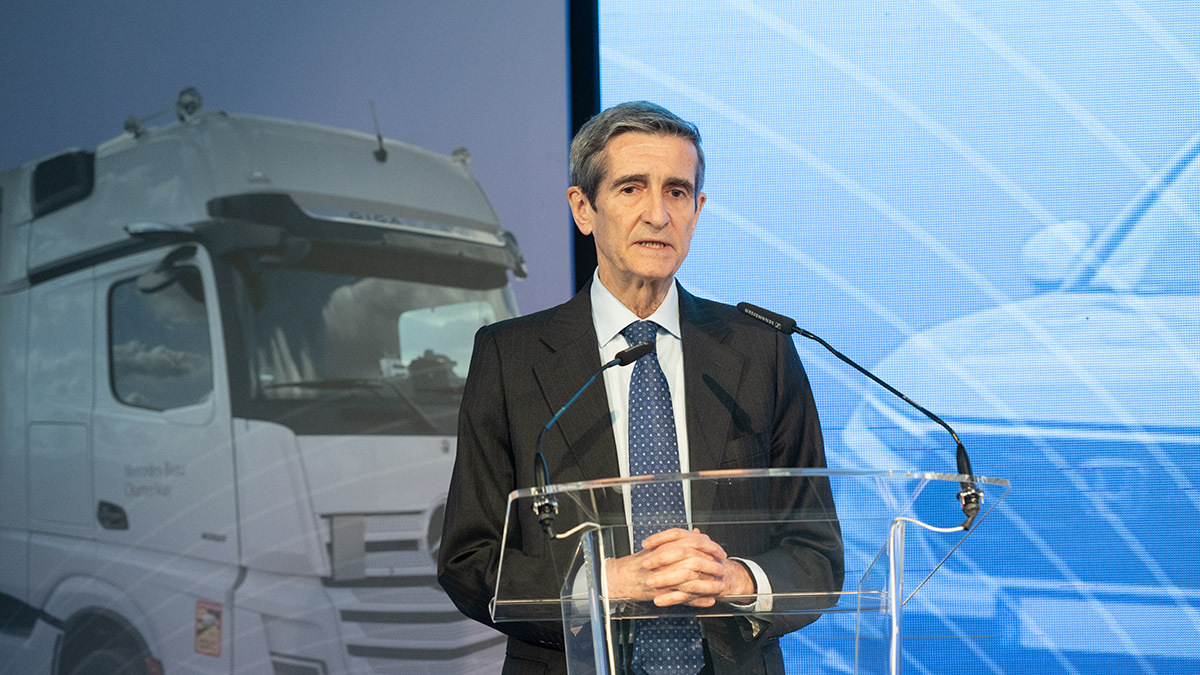
After the round table, Luis Cabra, president of FuelsEurope, took the floor and spoke about renewable fuels and the European Union. He emphasised that the event is important to demonstrate that renewable fuels are available throughout the European Union and that visibility will be given to a value chain that is known for the products it uses, but is unknown for the regulation, which gives rise to this contradictory regulation. In this sense, he indicated that the EU regulation must be changed, and we must be optimistic that they want to change ‘and for that we must all work together, with the different institutions, and with common decarbonisation objectives’.
‘Spain has the most competitive refinery in Europe,’ he recalled, although he also said that we need to invest a lot in technology to generate cheaper fuels and reiterated the need for good regulation.
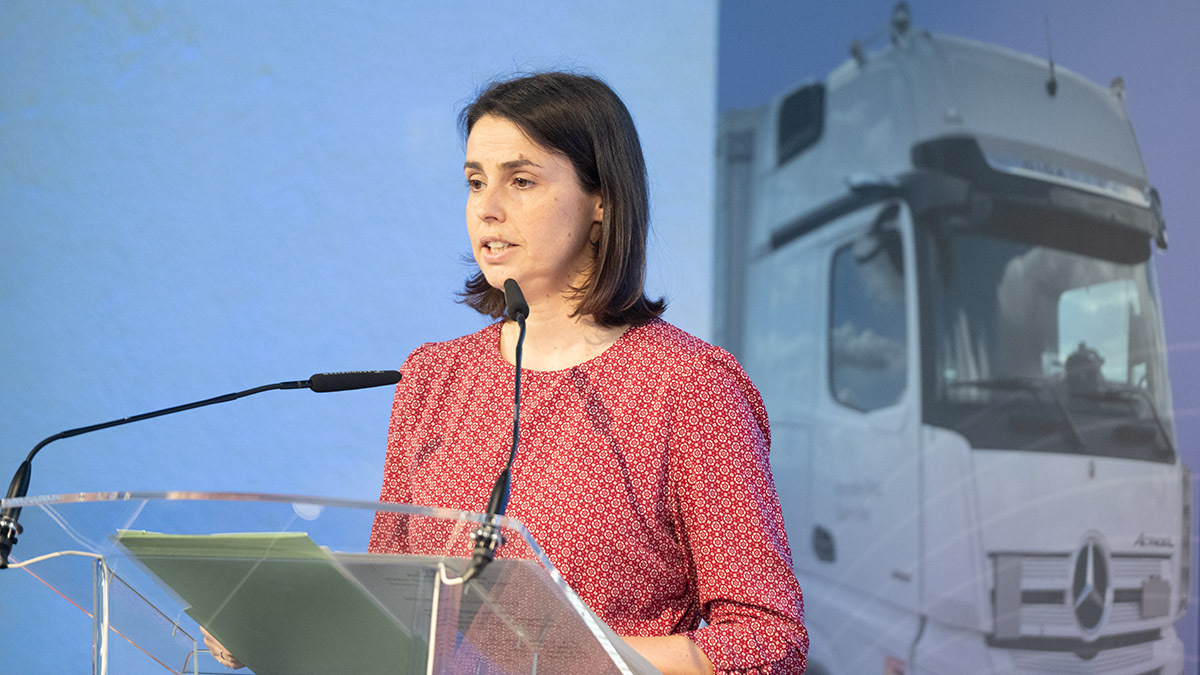
The event was closed by Elena María Atance Herreros, Director General of Road and Rail Transport at the Ministry of Transport and Sustainable Mobility, who emphasised that the Ministry's position is to make ‘a sustainable transition, in environmental, economic and social terms, taking into account the particularities of the transport sector’. Likewise, although he showed the need to advance in electrification, ‘which the Ministry strongly supports,’ he stressed that they cannot forget the important advances that are being made with sustainable fuels, with HNO at the forefront, ‘an option for the decarbonisation of the real and tangible sector,’ she said.



